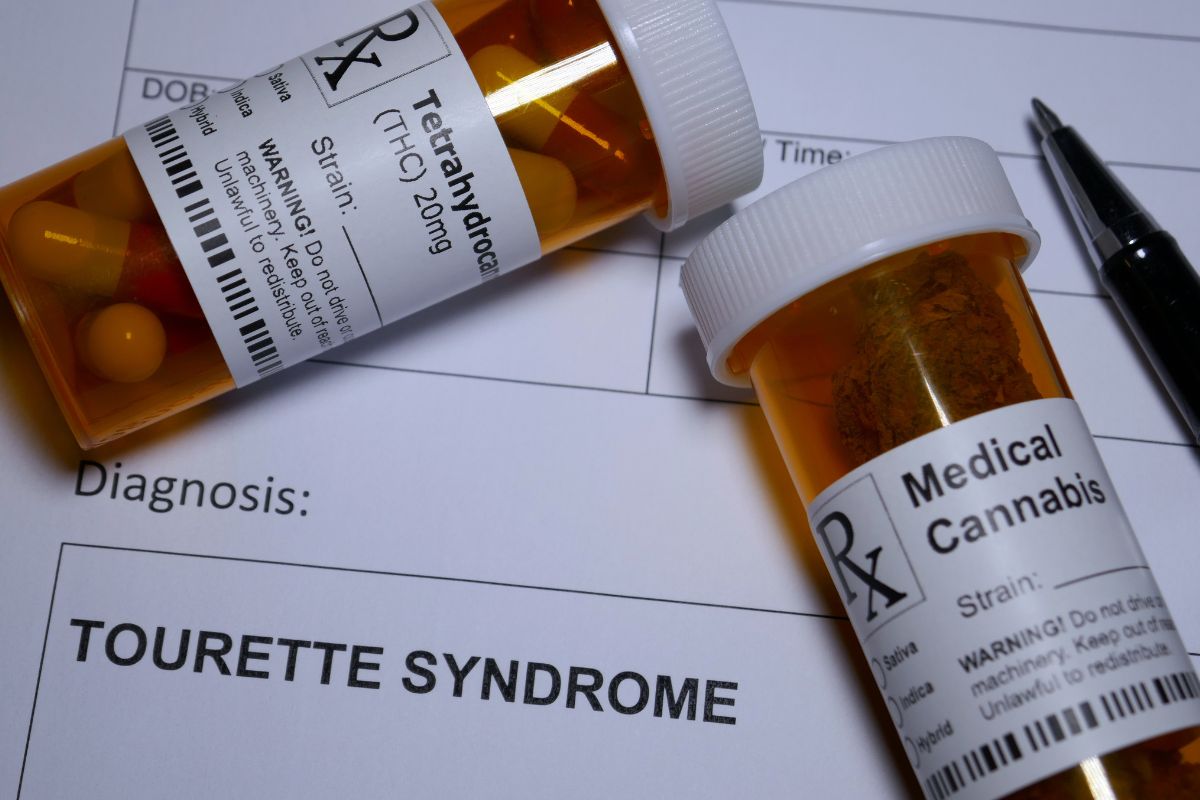Top 7 Benefits of Smoking Weed: Health and Therapeutic Advantages
People are increasingly curious about the benefits of smoking weed. This article covers seven benefits backed by research, from pain relief to anxiety reduction, highlighting its accepted medical applications for managing symptoms such as pain, nausea, vomiting, and appetite loss in patients with cancer, helping you understand how cannabis might improve your quality of life.
- Introduction to Medical Marijuana
- Key Takeaways
- Relief from Chronic Pain with Medical Marijuana
- Alleviation of Chemotherapy Side Effects, Including Nausea and Vomiting
- Reduction in Anxiety and Stress
- Improvement in Sleep Disorders
- Appetite Stimulation and Weight Management
- Gastrointestinal Benefits
- Seizure Control in Epilepsy
- Potential Neuroprotective Effects
- Therapeutic Uses and Possible Benefits
- Risks and Side Effects
- Summary
- Frequently Asked Questions
- What types of pain can cannabis help relieve for cancer patients?
- How does cannabis help with chemotherapy side effects?
- Can cannabis help reduce anxiety and stress in cancer patients?
- Is cannabis effective for improving sleep disorders?
- How does cannabis aid in appetite stimulation and weight management for cancer patients?
- Is cannabis effective for improving sleep disorders?
- How does cannabis aid in appetite stimulation and weight management for cancer patients?
Introduction to Medical Marijuana

Medical marijuana, also known as medical cannabis, refers to the use of the cannabis plant or its chemicals to treat various health conditions. The cannabis plant contains over 100 different chemicals called cannabinoids, each with unique effects on the body. The two main cannabinoids used in medicine are delta-9-tetrahydrocannabinol (THC) and cannabidiol (CBD). THC is responsible for the “high” associated with marijuana use, while CBD has been shown to have potential therapeutic benefits without the psychoactive effects. Despite state laws allowing medical marijuana, it remains illegal under federal law, complicating research and access.
Medical marijuana is increasingly recognized for its ability to treat a range of conditions. For instance, it offers significant relief for chronic pain, providing a natural alternative to traditional pain management methods. Additionally, it is effective in managing nausea and vomiting, particularly in patients undergoing cancer chemotherapy. The versatility of medical cannabis makes it a valuable tool in modern medicine, offering hope and relief for those dealing with various health challenges. However, there is controversy surrounding cannabis as a gateway drug, suggesting it may lead to the use of other substances.
Key Takeaways
- Cannabis offers significant relief for chronic pain, providing a natural alternative to traditional pain management methods and reducing reliance on opioids.
- Patients undergoing chemotherapy experience improved symptom management, as cannabis effectively alleviates nausea and vomiting, enhancing their overall quality of life.
- Cannabis contributes to better mental health by reducing anxiety and improving sleep quality among patients, despite the need for careful dosing and medical supervision.
Relief from Chronic Pain with Medical Marijuana
One of the most compelling reasons for the medical use of cannabis is its ability to relieve pain from chronic pain. Chronic pain, a persistent and debilitating condition, often resists conventional treatments, leaving patients in constant discomfort. Here, the cannabis sativa plant emerges as a powerful ally, offering a natural alternative to traditional pain management methods.
Cannabis effectively manages cancer pain and neuropathic pain, which are notoriously difficult to treat with standard medications. For many cancer patients, this means a significant reduction in pain levels, allowing them to regain a semblance of normalcy in their daily lives. The medicinal benefits of cannabis extend beyond mere pain relief, offering a comprehensive approach to managing complex pain syndromes. Additionally, cannabinoids have demonstrated significant anti-tumor effects in preclinical settings, particularly in gliomas, showcasing their potential as a therapeutic option in cancer treatment.
In states where medical marijuana is legalized, state laws and a notable decrease in opioid prescriptions suggest that cannabis may reduce reliance on opioids. This shift highlights the potential benefits of medical cannabis and underscores its importance in combating the opioid crisis by providing a safer, less addictive alternative for pain management.
Moreover, high CBD strains of cannabis are particularly beneficial for those dealing with chronic pain as they help improve sleep quality, offering a broad range of advantages. Patients whose pain disrupts sleep experience significant improvement in overall quality of life through the dual action of pain relief and sleep enhancement.
Alleviation of Chemotherapy Side Effects, Including Nausea and Vomiting
| Side Effect | How Cannabis Helps | Most Effective Form | Onset Time | Notes |
|---|---|---|---|---|
| Nausea | THC interacts with the brain’s emetic control centers to reduce nausea | Inhalation (smoking/vaping), Edibles | Smoking: 1–5 mins Edibles: 30–90 mins | Smoking offers fast relief, but edibles provide longer-lasting effects |
| Vomiting | THC and CBD can reduce vomiting reflex by acting on serotonin receptors | Vaping or tinctures | Vaping: 2–10 mins Tinctures: 15–30 mins | Tinctures are easier on the lungs and work quickly |
| Loss of Appetite (Anorexia) | THC stimulates appetite via the endocannabinoid system | Edibles or capsules | 30–60 minutes | Ideal for patients who need prolonged appetite stimulation |
| Fatigue | Certain cannabis strains (sativa-dominant) may improve energy levels | Vaping or low-dose edibles | Vaping: 5–15 mins | Microdosing recommended to avoid sedation |
| Pain and Neuropathy | Cannabinoids reduce inflammation and pain perception | Tinctures, topicals, edibles | Tincture: 15–30 mins Topical: varies | Non-inhaled methods often preferred for daily relief |
| Anxiety/Depression | CBD-rich strains may balance mood and reduce anxiety | Tinctures or high-CBD flower | 15–30 minutes | Low-THC, high-CBD options reduce mental strain without a heavy high |
Cancer chemotherapy, though life-saving, often comes with a host of debilitating side effects, including severe vomiting nausea and nausea and vomiting. These side effects, collectively known as chemotherapy-induced nausea and vomiting (CINV), can be so severe that they lead some patients to consider discontinuing treatment. This is where cannabis steps in as a game-changer.
Cannabis has been found to effectively manage nausea and vomiting when standard antiemetics fail to provide relief. Oral cannabinoids, in particular, have demonstrated equivalent effectiveness to available antiemetic drugs, offering a viable alternative for patients struggling with CINV. Additionally, cannabis has shown potential in improving appetite and managing weight loss in patients with advanced cancer, addressing significant appetite loss and weight fluctuations due to cancer-related anorexia-cachexia syndrome. The ability to treat nausea effectively is not just about comfort; it can significantly impact a patient’s willingness and ability to continue with their treatment regimen.
Patients often report a preference for cannabinoids over traditional antiemetic medications, citing fewer adverse events and a more natural approach to treat symptoms management. This preference underscores the importance of considering patient experiences and choices in treatment plans, as the mind-altering effects of cannabis can often be seen as a benefit rather than a drawback.
Strains of cannabis containing THC are particularly effective in easing chemotherapy-induced nausea and vomiting. This results in fewer days spent battling debilitating side effects and more days feeling like themselves. The medicinal benefits of cannabis in this context are profound, improving not only physical symptoms but also the overall quality of life.
Cannabis reducing symptoms like nausea and vomiting helps patients maintain strength and resilience throughout their cancer journey. This improvement in daily living conditions can make a significant difference in their overall treatment experience and outcomes, especially when smoking cannabis.
Reduction in Anxiety and Stress

The mental health effects of cancer can be just as challenging as the physical ones. Anxiety and stress often accompany a cancer diagnosis and treatment, making an already difficult journey even more daunting. Here, medical marijuana offers a ray of hope by helping to reduce anxiety and stress.
Cannabidiol (CBD), a non-psychoactive component of cannabis, significantly lessens anxiety during stressful situations, such as public speaking. Various studies have examined the efficacy of cannabidiol in treating anxiety symptoms specifically in patients with social anxiety disorder, indicating limited evidence supporting its effectiveness, particularly during public speaking tests, while also noting concerns about study design and potential biases. CBD offers much-needed relief from the constant anxiety accompanying cancer diagnosis and treatment. This reduction in anxiety can improve their overall mental health and well-being.
Low doses of THC, another component of cannabis, have also been found to alleviate anxiety symptoms. However, it’s important to note that higher doses of THC can have the opposite effect, potentially increasing anxiety. This highlights the importance of proper dosing and medical supervision when using cannabis for anxiety relief.
Many patients report that cannabis helps them relax and relieve emotional stress. This sense of relaxation can be particularly beneficial for those dealing with the emotional toll of cancer. Short-term relief from anxiety symptoms with cannabis helps patients navigate their treatment journey with a clearer and calmer mind.
However, it’s crucial to be aware of the potential risks associated with high THC cannabis use, including the possibility of increased risk of increased anxiety and even acute psychosis in some cases. As with any medication, understanding the balance between benefits and risks is key to its effective use.
Improvement in Sleep Disorders
| Sleep Disorder | How Cannabis Helps | Key Cannabinoids | Recommended Form | Onset Time | Duration |
|---|---|---|---|---|---|
| Insomnia | THC helps reduce the time it takes to fall asleep and may increase deep sleep stages | THC | Edibles, tinctures, or vape at bedtime | Edibles: 30–90 mins Vape: 5–15 mins | 4–8 hours |
| Sleep Apnea | Cannabis may regulate serotonin and reduce apnea episodes by relaxing throat muscles | THC, some terpenes | Edibles or sublingual tinctures | Tincture: 15–30 mins | 4–6 hours |
| Restless Leg Syndrome | Cannabinoids may reduce nerve-related discomfort and movement during sleep | THC + CBD | Tincture, vape, or topical at night | Vape: 5–15 mins | 2–4 hours |
| Nightmares (PTSD-related) | THC can reduce REM sleep where most vivid dreams occur, helping reduce nightmares | THC | Edibles or vape before bed | Edibles: 45–90 mins | 6–8 hours |
| Stress-related Sleep Loss | CBD calms the nervous system and reduces anxiety, promoting restful sleep | CBD | CBD oil, gummies, or capsules | 30–60 mins | 4–6 hours |
| Chronic Pain Interference | THC and CBD help manage pain that disrupts sleep | THC + CBD | Tinctures, edibles, or topicals | Tincture: 15–30 mins | 4–8 hours |
Sleep disorders are a common issue among cancer patients, often exacerbated by pain, anxiety, and the side effects of treatment. Here again, cannabis offers a potential solution, helping to improve sleep quality and duration. Cannabis is known for its calming effects on the mind, which can help patients fall asleep more easily and stay asleep longer. This is particularly beneficial for those whose sleep is disrupted by pain or anxiety. Additionally, cannabis may alleviate symptoms associated with chronic neurological conditions related to the spinal cord, such as multiple sclerosis and paraplegia, by improving sleep quality and reducing spasticity. Improved sleep quality from cannabis use allows patients to wake up more rested and prepared for the day.
Indica cannabis strains and products with added CBD are typically used to address sleep issues. These strains are known for their sedative properties, making them ideal for nighttime use. However, it’s important for patients to consult with their doctors before using cannabis for sleep, to ensure it’s the right option for their specific situation.
It’s also worth noting that long-term use of cannabis may negatively affect sleep quality and worsen sleep issues if stopping cannabis abruptly after prolonged use. This highlights the importance of using cannabis responsibly and under medical supervision to avoid potential withdrawal symptoms and other adverse effects.
Appetite Stimulation and Weight Management
Cancer and its treatments often lead to significant weight loss and muscle wasting, a condition known as cachexia. Cannabis serves as a valuable tool for stimulating appetite and managing weight in patients facing this issue. Many cancer patients report an increase in appetite when using cannabis, helping to counteract the effects of cachexia. This increase in appetite can make a significant difference in a patient’s ability to maintain their strength and energy levels throughout their treatment.
The appetite-stimulating effects of THC have been particularly notable in patients with advanced cancers. Both THC and CBD can be effective in stimulating appetite and managing weight, with some studies suggesting that their combined use may enhance these benefits. Cannabis plays a crucial role in overall health and well-being by helping these patients eat more and increase appetite. Dronabinol, a cannabis-derived drug, has been beneficial not only for HIV patients experiencing poor appetite but also for cancer patients struggling with weight loss. This highlights the versatility of cannabis in managing various health problems related to appetite and nutrition.
Cannabis use can also be particularly beneficial for individuals suffering from anorexia or wasting syndrome caused by serious illnesses such as cancer and HIV/AIDS. Increased appetite and weight gain from cannabis use improve nutritional status and overall health for these patients.
Gastrointestinal Benefits

Medical marijuana has shown promising potential in improving gastrointestinal health, particularly for conditions like irritable bowel syndrome (IBS). Cannabinoids interact with receptors in the gut, helping to reduce inflammation and alleviate symptoms such as abdominal pain and diarrhea. This interaction can provide significant relief for patients who struggle with the chronic discomfort associated with IBS.
Moreover, medical marijuana is effective in reducing nausea and vomiting, common side effects of cancer chemotherapy. These symptoms can be debilitating, making it difficult for patients to maintain their strength and continue with their treatment. By alleviating these side effects, medical cannabis helps improve the overall quality of life for cancer patients, allowing them to focus on recovery rather than discomfort.
While research is still ongoing, preliminary studies suggest that medical marijuana could be a valuable adjunct therapy for patients with gastrointestinal disorders. As more evidence emerges, the role of cannabis in managing these conditions is likely to become even more significant.
Seizure Control in Epilepsy
Cannabis offers the additional benefit of seizure control for epilepsy patients, which is particularly valuable for those also battling cancer. Clinical research indicates that CBD can significantly lower seizure frequency in specific epilepsy conditions. The manipulation of the endocannabinoid system and stimulation of cannabinoid receptors may also play a role in reducing seizure frequency.
The FDA’s approval of Epidiolex, a CBD-based drug, for treating seizures associated with certain epilepsy syndromes underscores the growing recognition of cannabis’s medicinal benefits. This approval provides a regulated and reliable treatment option for patients in need.
The efficacy of CBD in reducing seizures appears to persist throughout the duration of clinical trials, providing consistent relief for patients. This long-term effectiveness is crucial for individuals with chronic conditions that require ongoing management.
In clinical studies, patients receiving cannabidiol treatment experienced a median reduction in motor seizures of 36.5 percent. Children with Dravet syndrome experienced a roughly 39 percent reduction in seizures when using CBD oil. These statistics highlight the significant impact cannabis can have on seizure control.
However, some patients may experience an increase in seizure activity when using non-prescription CBD products due to potential impurities. This underscores the importance of using high-quality, regulated cannabis products and maintaining close monitoring by healthcare providers when using cannabis for seizure control.
Potential Neuroprotective Effects
| Neuroprotective Aspect | How Cannabis May Help | Key Cannabinoids Involved | Supporting Evidence/Notes |
|---|---|---|---|
| Reduction in Inflammation | Cannabinoids like THC and CBD reduce neuroinflammation, a contributor to neurodegeneration | CBD, THC | Especially useful in conditions like Alzheimer’s, Parkinson’s, and MS |
| Oxidative Stress Relief | Antioxidant properties help reduce cell damage in the brain | CBD | CBD shown to counteract oxidative stress in preclinical studies |
| Neurogenesis Promotion | May promote the growth of new brain cells in certain areas like the hippocampus | CBD, low-dose THC | Potential implications for memory, mood, and cognitive function |
| Glutamate Regulation | Helps regulate glutamate levels to prevent excitotoxicity (neuron death) | THC, CBD | Glutamate overactivity is linked with brain trauma and stroke |
| Support in Traumatic Brain Injury (TBI) | Cannabinoids may reduce brain swelling and protect neurons | THC, CBD | Early animal and limited human studies show promise |
| Delay in Neurodegenerative Diseases | May slow progression of diseases like Alzheimer’s and Parkinson’s | CBD, THC | Ongoing research; not a cure but may be supportive |
| Mood and Memory Balance | Balancing effects on serotonin and dopamine may help with anxiety, depression, and memory | CBD | Important in neuropsychiatric health and prevention of stress-induced damage |
Cannabinoids, the active compounds in cannabis, have been noted for their potential neuroprotective effects, which could be particularly beneficial for cancer cells patients with neurological conditions. These effects are especially important in conditions like multiple sclerosis and amyotrophic lateral sclerosis (ALS), including the role of synthetic cannabinoid. Cannabinoids interact with receptors in nerve cells to reduce pain impulses and alleviate discomfort, showcasing their medicinal benefits in managing chronic pain and its associated side effects.
Current evidence suggests that cannabinoids can provide modest neuroprotective effects, although the quality of evidence remains very low, indicating limited evidence. This means that while there is potential, more research is needed to fully understand and validate these benefits.
In clinical studies, approximately 50 percent of patients with spasticity related to multiple sclerosis showed improvement with cannabinoid treatment. This highlights the possible benefits of cannabis for patients with neurological diseases, though further research is required to provide conclusive evidence regarding its effectiveness.
Therapeutic Uses and Possible Benefits

Cannabis, often referred to as medical marijuana or medical cannabis, has garnered significant attention for its broad range of therapeutic uses. The cannabis plant, particularly its cannabinoids like THC and CBD, offers a variety of medicinal benefits that extend beyond pain relief. These compounds interact with the body’s endocannabinoid system, influencing various physiological processes and providing relief for numerous health conditions.
One of the most well-documented uses of medical cannabis is in the management of chronic pain. Patients suffering from conditions such as rheumatoid arthritis, neuropathic pain, and cancer pain have reported significant relief with cannabis use. This natural alternative to opioids not only alleviates pain but also reduces the risk of drug abuse and dependency, a critical consideration in the current opioid crisis.
Beyond pain management, cannabis has shown promise in treating mental health conditions. For instance, CBD has been found to reduce anxiety and improve sleep quality, making it a valuable tool for those dealing with social anxiety disorder or post-traumatic stress disorder (PTSD). The calming effects of CBD can help patients navigate stressful situations with greater ease, enhancing their overall quality of life.
Cannabis also plays a role in managing the side effects of cancer chemotherapy. Patients undergoing treatment often experience severe nausea and vomiting, which can be debilitating. Cannabis, particularly strains high in THC, has been effective in reducing these symptoms, allowing patients to maintain their strength and continue with their treatment regimen.
Moreover, the anti-tumor effects of cannabinoids have been a subject of interest in cancer research. Preliminary studies suggest that cannabinoids may inhibit tumor growth and promote the death of cancer cells, offering a potential adjunctive therapy for cancer treatment. While more research is needed to fully understand these effects, the existing evidence is promising.
In addition to these benefits, cannabis has been found to improve gastrointestinal health, particularly in conditions like irritable bowel syndrome (IBS). By reducing inflammation and alleviating symptoms such as abdominal pain and diarrhea, cannabis can significantly enhance the quality of life for patients with chronic gastrointestinal disorders.
Overall, the therapeutic uses of cannabis are vast and varied, making it a valuable addition to the integrative health arsenal. As research continues to evolve, the potential benefits of this remarkable plant are likely to expand, offering new hope and relief for patients with a wide range of health conditions.
Risks and Side Effects
| Category | Potential Risk / Side Effect | Details | Severity |
|---|---|---|---|
| Respiratory Health | Throat irritation, coughing, phlegm buildup | Smoke can irritate lungs even if cannabis is used medically | Mild to Moderate |
| Mental Effects | Anxiety, paranoia, short-term memory loss | More likely with high-THC strains or in sensitive individuals | Mild to Severe |
| Heart Health | Increased heart rate, blood pressure changes | May pose risks for people with heart conditions | Moderate |
| Dependence Potential | Psychological dependence with frequent use | Less addictive than tobacco or opioids, but still possible | Mild to Moderate |
| Cognitive Impairment | Reduced attention, memory, or coordination | Especially risky when performing tasks like driving | Moderate |
| Tolerance Build-Up | Need for higher doses over time to achieve the same effect | Common with long-term use | Mild |
| Dry Mouth & Eyes | Common side effects due to reduced saliva and tear production | Easily manageable with hydration and eye drops | Mild |
| Lung Health (Long-Term) | Risk of chronic bronchitis or respiratory infection | More of a concern with frequent, heavy smoking | Moderate |
| Drug Interactions | Can interact with medications like blood thinners or antidepressants | Always consult a doctor before use | Variable |
While the therapeutic benefits of medical marijuana are compelling, it is essential to be aware of the potential risks and side effects. Smoking marijuana, for instance, can cause lung damage and increase the risk of heart disease. These health effects are particularly concerning for patients with pre-existing conditions, making it crucial to consider alternative delivery methods such as edibles or topical forms.
High doses of THC can also lead to adverse psychological effects, including anxiety, paranoia, and even psychosis. This underscores the importance of proper dosing and medical supervision when using cannabis for therapeutic purposes. Additionally, medical marijuana can interact with other medications, potentially worsening conditions like glaucoma and multiple sclerosis. There is also evidence linking cannabis use to a higher risk of developing alcohol use disorders and potential addiction to other substances, emphasizing the need for awareness of these associated risks.
Patients considering medical marijuana should have an open discussion with their healthcare provider to weigh the potential benefits against the risks. This informed approach ensures that cannabis use is both safe and effective, tailored to the individual’s specific health needs.
Summary
In summary, the therapeutic advantages of cannabis for cancer patients are vast and varied. From relieving chronic pain and alleviating chemotherapy side effects to reducing anxiety, improving sleep, stimulating appetite, controlling seizures, and offering potential neuroprotective effects, cannabis has proven to be a valuable tool in the integrative health arsenal. Additionally, research indicates that cannabinoids may have the potential to slow tumor growth in different cancer models, suggesting a possible role for cannabinoids in cancer treatment.
The medicinal benefits of cannabis are backed by a growing body of evidence and patient testimonials, highlighting its role in improving the quality of life for those battling cancer. As research continues to evolve, we can expect to see even more potential benefits of this remarkable plant.
For cancer patients and their loved ones, understanding the possible advantages of medical marijuana can open new doors to comfort and relief. As we move forward, embracing the potential of cannabis for medical purposes can lead to better health outcomes and a brighter future for those in need.
Frequently Asked Questions
What types of pain can cannabis help relieve for cancer patients?
Cannabis can effectively relieve chronic pain, including cancer-related pain and nerve pain, providing significant support for cancer patients.
Additionally, systematic reviews have evaluated the efficacy of cannabinoids for pain management in conditions like rheumatoid arthritis, showing promising results for chronic pain relief.
How does cannabis help with chemotherapy side effects?
Cannabis effectively alleviates nausea and vomiting associated with chemotherapy, enhancing the overall quality of life for patients. This symptom relief can be crucial during treatment. The National Institute on Drug Abuse provides cannabis for research to study its effectiveness in managing chemotherapy side effects, highlighting the need for further research on its safety and efficacy.
Can cannabis help reduce anxiety and stress in cancer patients?
Yes, cannabis, particularly CBD and low doses of THC, can effectively reduce anxiety and stress in cancer patients. Additionally, research suggests that cannabis may have potential benefits in treating posttraumatic stress disorder (PTSD) symptoms, with studies and clinical trials exploring its effectiveness in alleviating psychological distress caused by traumatic events.
Is cannabis effective for improving sleep disorders?
Cannabis has shown potential benefits for improving sleep disorders, particularly in patients with chronic pain and post-traumatic stress disorder (PTSD). THC has been found to reduce sleep latency and increase sleep duration, making it easier for patients to fall and stay asleep. On the other hand, CBD has a calming effect that can help reduce anxiety, further promoting better sleep.
However, the use of cannabis for sleep disorders is still under research, and more studies are needed to fully understand its effects. It is also important to note that cannabis use for sleep can have potential risks, such as dependence and withdrawal symptoms. Patients should discuss the potential benefits and risks with their healthcare provider to ensure that cannabis is a suitable option for their sleep issues.
By considering both the therapeutic advantages and the potential drawbacks, patients can make informed decisions about using cannabis to improve their sleep quality.
How does cannabis aid in appetite stimulation and weight management for cancer patients?
Cannabis, also known as medical marijuana or medical cannabis, has been found to have potential therapeutic benefits in aiding appetite stimulation and weight management for cancer patients. The cannabis plant, specifically the cannabinoids tetrahydrocannabinol (THC) and cannabidiol (CBD), interact with the body’s endocannabinoid system to help regulate appetite and metabolism. Studies have shown that cannabis use can increase appetite and reduce nausea and vomiting in patients undergoing cancer chemotherapy, which can lead to weight loss and malnutrition.
The National Institute on Drug Abuse (NIDA) has recognized the potential medicinal benefits of cannabis in treating chronic pain, nausea, and vomiting, as well as stimulating appetite in patients with advanced cancer or HIV/AIDS. The Drug Enforcement Administration (DEA) has also approved certain cannabis-based medications, such as dronabinol, for the treatment of nausea and vomiting associated with cancer chemotherapy.
Smoking cannabis or using cannabis products can have varying effects on appetite and weight management, depending on the individual and the specific product used. Some patients may experience increased appetite and weight gain, while others may experience no significant changes. However, the use of cannabis for appetite stimulation and weight management is generally considered to be a safer alternative to other medications, such as steroids or appetite stimulants, which can have more severe side effects.
In addition to its potential benefits for appetite stimulation and weight management, cannabis has also been found to have anti-tumor effects and may help reduce anxiety and stress in cancer patients. The National Academies Press has recognized the potential therapeutic benefits of cannabis in treating chronic pain, nausea, and vomiting, as well as stimulating appetite in patients with advanced cancer or HIV/AIDS.
Overall, the use of cannabis for appetite stimulation and weight management in cancer patients is a complex issue that requires further research and consideration of the potential benefits and risks. However, the available evidence suggests that cannabis may be a useful adjunctive therapy for patients experiencing nausea, vomiting, and weight loss associated with cancer chemotherapy.
It is essential to note that the use of cannabis for medical purposes is subject to state laws and regulations, and patients should consult with their healthcare provider before using cannabis or any other medication. The health effects of cannabis use can vary depending on the individual, the specific product used, and the method of delivery. More research is needed to fully understand the potential benefits and risks of cannabis use for appetite stimulation and weight management in cancer patients.
In terms of lung health, smoking cannabis can cause lung damage and increase the risk of respiratory problems, such as bronchitis and lung cancer. However, topical forms of cannabis or cannabis-based medications may be a safer alternative for patients who want to avoid smoking.
The potential benefits of cannabis for appetite stimulation and weight management in cancer patients include:
- Increased appetite and food intake
- Reduced nausea and vomiting
- Weight gain and improved nutrition
- Reduced anxiety and stress
- Anti-tumor effects
- Improved quality of life
However, the use of cannabis can also have potential risks and side effects, such as:
- Lung damage and respiratory problems
- Increased heart rate and blood pressure
- Mental health problems, such as anxiety and psychosis
- Dependence and addiction
- Interactions with other medications
In conclusion, the use of cannabis for appetite stimulation and weight management in cancer patients is a complex issue that requires further research and consideration of the potential benefits and risks. Patients should consult with their healthcare provider before using cannabis or any other medication, and should be aware of the potential risks and side effects associated with cannabis use.
Is cannabis effective for improving sleep disorders?
Indica cannabis and products with added CBD can help improve sleep duration and quality.
How does cannabis aid in appetite stimulation and weight management for cancer patients?
Cannabis, particularly indica strains and products containing added CBD, can be effective in improving sleep duration and quality. Therefore, individuals seeking relief from sleep disorders may consider these options. However, it is important to be aware of the potential mental health risks, such as cannabis use disorder, especially among adolescents using high THC strains. The frequency and method of cannabis intake can influence the risk of developing this disorder, so approaching cannabis use with caution and seeking professional guidance is advisable.








